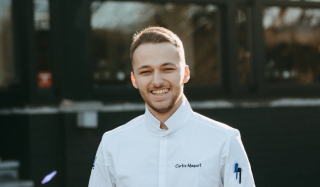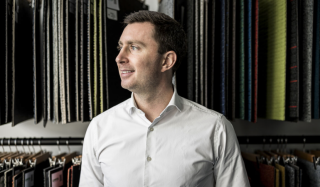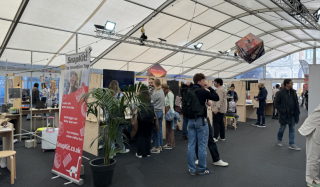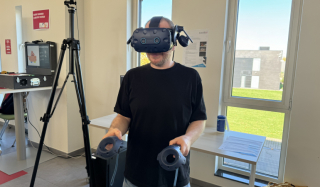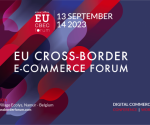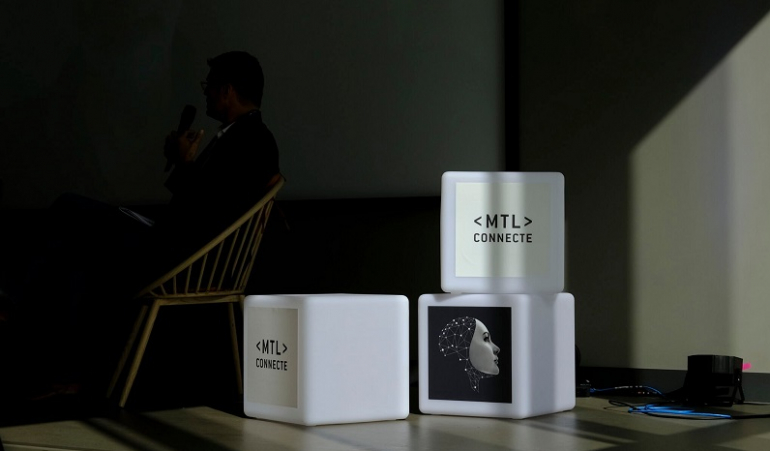
From 10 to 13 October, the digital world took centre stage in Montreal. The major city in Quebec hosted the fifth edition of "MTL connecte", a vast networking event for digital players in the French-speaking world.
This year it was Belgium's turn in the spotlight, with the focus on Brussels and Wallonia in particular, discussing the cross-cutting theme of collective intelligence.
Understanding and seizing the opportunities of the digital revolution
"Collective intelligence is what transforms disparate groups into tight-knit, innovative communities," says Mehdi Benboubakeur, Director-General of Digital Spring, organiser of MTL connecte. "It enables the blending of skills, the hybridisation of knowledge and the emergence of unexpected forms of digital innovation."
Wallonia-Brussels International (WBI) and the Wallonia Export-Investment Agency (Awex) pulled out all the stops for the occasion. "We've been taking part in Montreal connecte for five years now," says Pascale Delcomminette, Administrator General of the two agencies. "This year's spotlight on Belgium is evidence of our interest in this event from the outset, but also in the broader digital sector."
Artificial intelligence, culture, connected territories and cybersecurity
Some seventy researchers, representatives of universities and higher education institutions, as well as start-ups and companies active in the digital sector from the Wallonia-Brussels Federation made the trip, thanks to the support of these two agencies and their representatives in Quebec.
Why send such a delegation? "Canada holds a prominent position in the digital sector," says Pascale Delcomminette. "Think of gaming, for example. The country is also ranked fifth in the world for artificial intelligence. That's what interested our researchers at the TRAIL initiative (TRusted AI Labs)."
"More generally, this event also enables us to meet several of our objectives. It affords Brussels and Wallonia greater visibility in the four digital spheres highlighted at "MTL connecte": cultural and creative industries, cybersecurity, connected territories and, of course, artificial intelligence," explains Ms Delcomminette.
"It also increases the visibility of our players in these four areas. This opens up new prospects for them in Quebec, whether in terms of research, innovation or economic development. All in an international, French-speaking environment. And let's not forget that Canada will soon be an associate country in the European Commission's Horizon Europe research programme, which will open up new collaboration prospects for our researchers and companies."
Developing activities in Quebec
Researchers and professors from UMons, ULB and UCLouvain attended the event. The Haute Ecole Albert Jacquart was also there, as well as various entrepreneurs.
Geoffroy Piroux is one of them. This doctor in theoretical physics from UCLouvain is a managing partner at B12 Consulting in Louvain-la-Neuve. His company employs forty-five people, almost half of whom hold PhDs in science or have a background in the world of research. Astonishing, isn't it, for a services company developing IT solutions based on artificial intelligence?
"Our job is to work on customised solutions for our customers," he explains. "Scientific methods lie at the heart of what we do. This involves building models to better understand a situation, or breaking down highly complex problems into intelligible structures."
"In this context, doctors of science, whether mathematicians or physicists, have a different way of thinking from engineers or information technologists. They have alternative analytical skills. It's this specific aspect of our work that explains this strong presence of doctors of science in our team."
Networking to boost collective intelligence
What's the story of Piroux's participation in MTL connecte? "This is the second year I've taken part," says Geoffroy Piroux. "Last year, I took an exploratory approach. This year, our aim is to grow our market. For example, by forging a partnership with a local company whose expertise complements our own."
To achieve this, there will be networking opportunities and pitch sessions set up throughout the week to encourage participants to meet and chat. "This networking, which all members of the Belgian delegation can benefit from, is another advantage of our trip," emphasises Ms Delcomminette. "Whether it's making contacts with foreign partners or with others from Wallonia and Brussels, the event gives us plenty of time to talk at length, which is very useful. In a way, this also allows a certain collective intelligence to develop," she concludes.
This article was written by Christian Du Brulle for the Daily Science platform.
